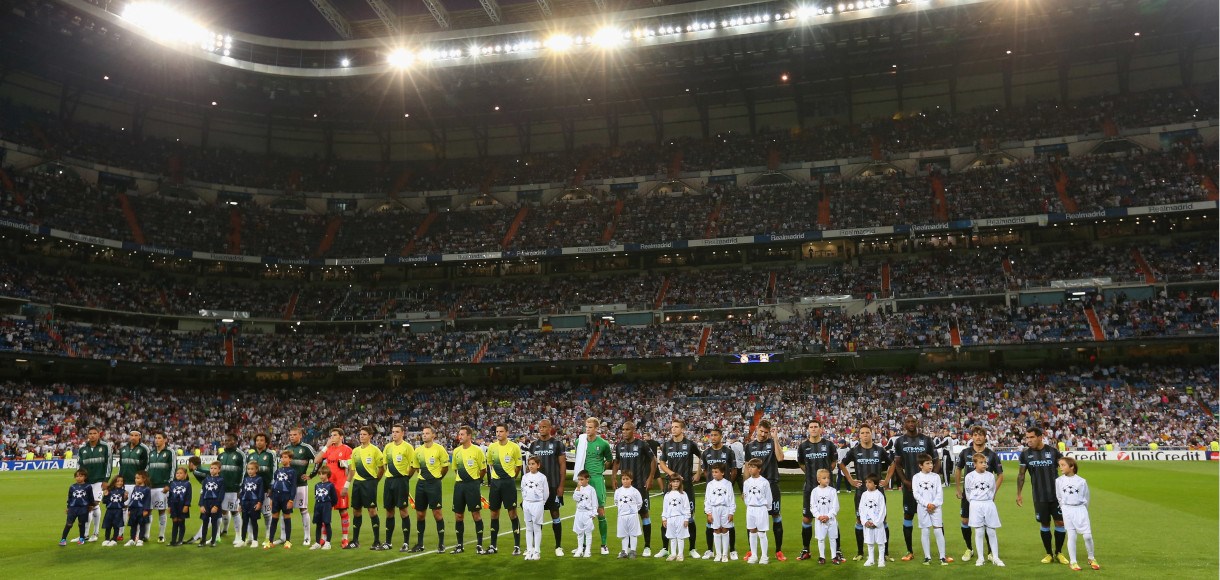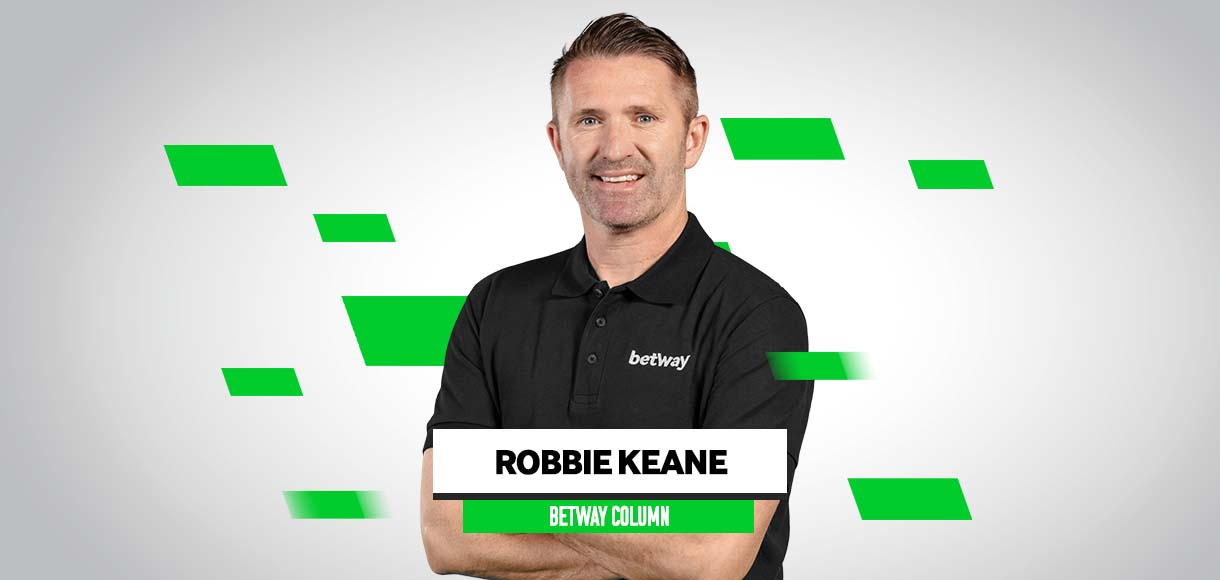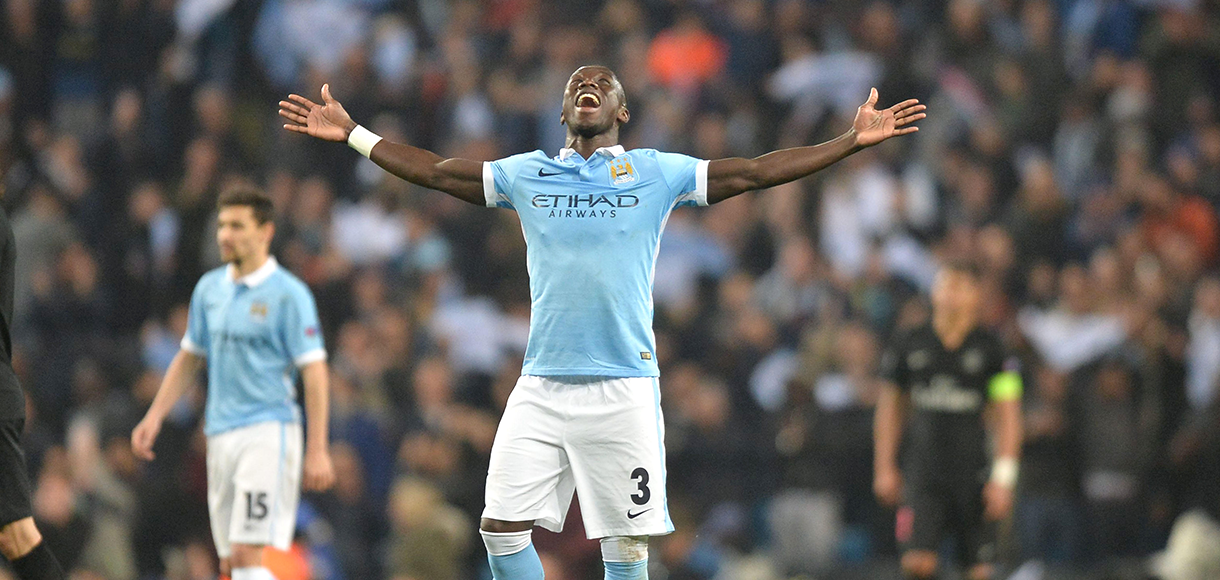Meet the man who made the iconic Champions League anthem

'Cristiano sings along - it's lovely,' says composer Tony Britten, who was conductor on Robocop before creating football's most recognisable piece of music.
Picture the scene: the floodlights are on and the Bernabeu is packed.
Players from both teams are lined up on the pitch as an army of bibbed volunteers wave the giant flag that resembles a match ball over the centre circle.
In chime the opening chords of that song through the PA system and that’s it. Chills.
It’s as iconic as Zinedine Zidane’s volley against Leverkusen and as emotive as Steven Gerrard’s trophy lift in Istanbul.
The Champions League anthem is the soundtrack of football and helps create a pre-match atmosphere like no other.
It is something every player wants to hear in their career. It validates their place at the top of the game. Just ask Gareth Bale.
The Welshman cited the anthem as one of the reasons he wanted to move to Real Madrid in 2013.
The song even moved Francesco Totti to tears when Roma made their return to the competition in 2014 after a four-year hiatus.
Cristiano Ronaldo, meanwhile, has been known to belt out the words before a game.
When you love the #UCL so much that you sing the anthem 😀🎶@Cristiano 👏👏👏 pic.twitter.com/Evt2xkOj9t
— UEFA Champions League (@ChampionsLeague) October 18, 2017
“Yes, Cristiano sings along. It’s lovely,” says Tony Britten, who composed the most recognisable piece of music in football despite his favourite sport being rugby.
“It’s gratifying when the players, managers and people who actually participate say it does something for them.
“I remember Pep Guardiola saying that the music did it for him, and there have been various players.
“I did a TV show a few years back on a Champions League evening and Stefan Effenberg was the lead pundit.
“We were doing an interview and he told me: ‘When I used to stand there and that music started playing, literally all the hairs on my back stood up. It meant you’d arrived.’”
Britten – no relation of namesake Benjamin – lists musical director at the National Theatre's Olivier Award-winning Guys and Dolls in 1982 and conductor on 1987 film Robocop on his CV. He was asked to compose the anthem for UEFA in 1992 as part of the rebrand from the European Cup.
His brief was to create something that disassociated UEFA’s elite club competition from the hooliganism that had engulfed it in the late 1980s.
“It was about restoring a bit of beauty back to the beautiful game,” he says.
“The message was that this was football of the highest order. If you wanted to see the best, European football was the way to do it.
“I’m not a great expert, but if you watch Champions League football, it’s a bit like going to the National Theatre.
“You might not like the play or the actors, but you know it’s going to be done really well. There’s a guarantee of excellence.”
The music borrows heavily from Handel’s Zadok The Priest, an anthem originally composed for the coronation of King George II in 1727.
While UEFA were clear on how they wanted the music to sound, little thought had been given on what they wanted it to say.
“I remember having a conversation with one of the people who was running the marketing and said: ‘Well, where are the words?’
“They said: ‘Oh, words. Well, I don’t know.’ I said: ‘Do you want me to think them up?’”
With the deadline approaching, Britten made a list of superlatives in English and had them translated into German and French, UEFA’s two other official languages.
Those superlatives – “the masters”, “the best”, “the champions”, “the main event” – became the lyrics that every football fan has sung in the build up to a big game, whether that be a Champions League encounter or a knockabout at Powerleague.
The impact of creating something seminal has not been lost on Britten, who realised after a few years that the song was “hitting a few emotional buttons”.
“I was conducting the La Scala choir singing it live at the 2001 final in Milan, when Bayern Munich played Valencia,” he says.
“It’s moments like that you start to think: ‘Blimey, this has got a bit big.’”
The song’s impact on Britten’s career and life has also been significant.
“The royalties have enabled me to take risks,” says the composer, who has recently launched subscription TV service TheArtsChannel.online.
“It’s enormously pleasing to have that freedom.”
That was not the expectation when he agreed to create the song, while working on several other projects, at the time.
“I don’t think anybody at UEFA ever really had an inkling that it would become the massive behemoth that it has,” says Britten.
“’Rebranding’ is now a big buzz word and a multi-billion pound industry. But back then, nobody had ever tried to put a strong brand image onto a multi-national sporting event.”
The reason for the song’s enduring appeal, says Britten, is because classical music is not “shackled to the notion of a modern beat”.
“It’s timeless,” he says. “When you’ve got a piece of music that has its roots in the last 300 years, then it’s not going to date.”
Here’s to the next 300 years.
Visit Betway's football betting page.





































